Finnish building technology company Allaway defeated Chinese brand hijackers with Kolster’s help
26.11.2020Central vacuum cleaning system manufacturer Allaway upgraded its technology to the era of the industrial internet and is now striving for growth. High technology is of interest to consumers who value health and clean indoor air in both Europe and Asia. The quality brand also attracted brand hijackers in China, but the challenges on the new market turned into growth opportunities with the help of IPR partner Kolster.
Competition is fierce on the global household appliance market. Standing out with unique patented technology, a strong brand and constant renewal is helpful to succeeding in the competition.
The IPR cooperation between Allaway and Kolster began back in the early 1980s, when the company patented the core of its technology. The company logo was created around the same time, and has since been widely registered as a trademark. 
“Patents put us in a good position on the market and we distinguished ourselves with technological advantages. Patents remain an important element in the quality reputation achieved by the ALLAWAY® brand”, Allaway’s Managing Director Pekka Juurinen says.
As technology reputation grows, patents also live on through the brand. For Allaway, the brand protected by trademarks is now the company’s most valuable IPR asset and tool for differentiation on the international market.
“The brand is what we use to sell, which is why its protection is also very important. We have wanted to build our own distribution channels and sell our products primarily under the ALLAWAY® brand. We currently export products to 15 countries in Europe and Russia. The next direction is Asia, where we see a lot of interest and potential for high-quality central vacuum cleaners”, Juurinen says.
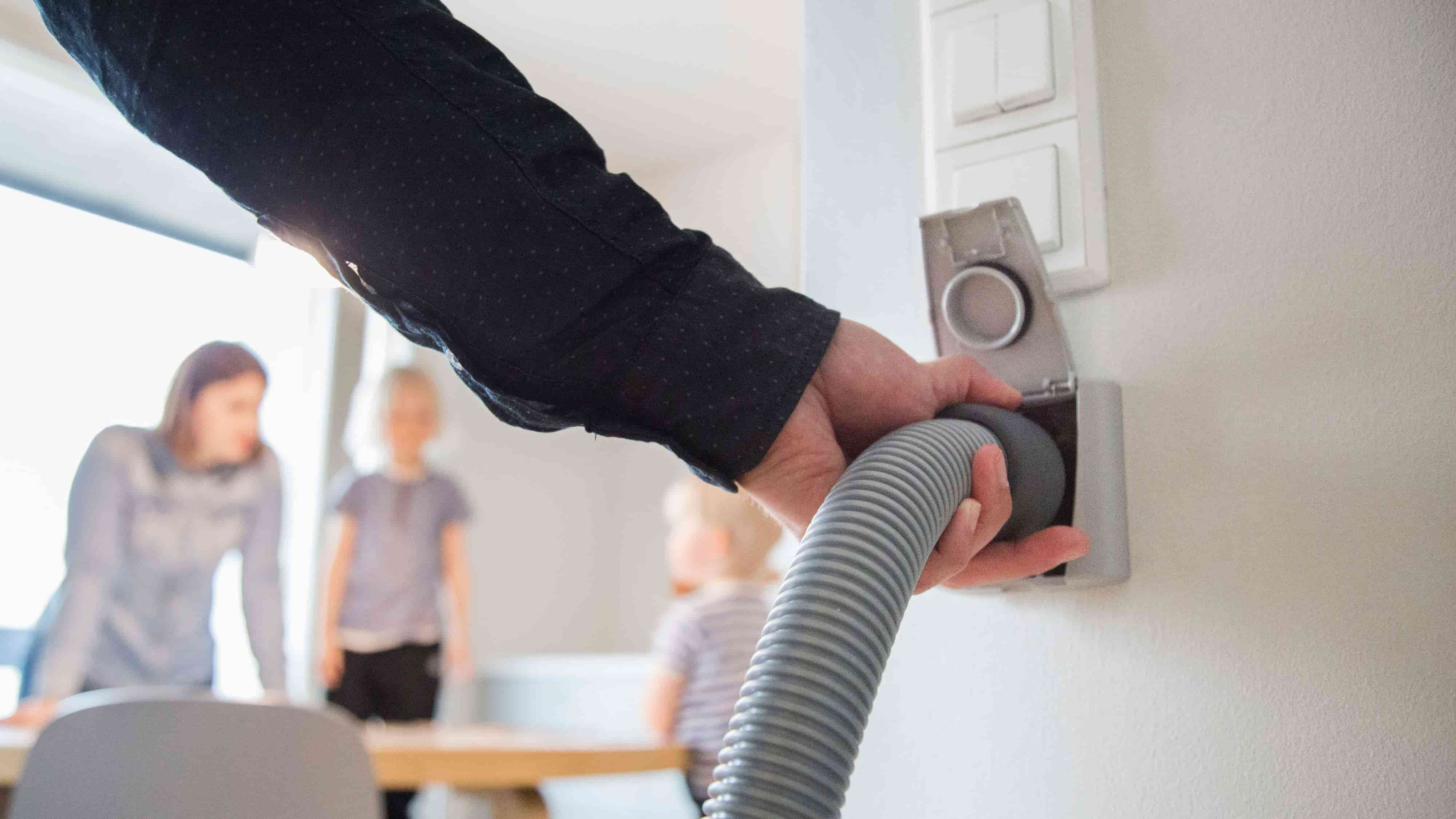
IPR partner’s expertise is emphasised if unexpected challenges are encountered in the international market
Allaway’s international trademark protection has been expanded in cooperation with Kolster’s trademark experts as new export countries and importers have been added to the company’s sales network.
“It has been important to us that we have been able to trust that a single partner has sufficient expertise in all the IPR issues that come up on the international market. Kolster’s own brand as an international expert in its field is strong”, Juurinen explains the choice of partner and the foundation of the cooperation.
According to him, a small company in particular should seek partnerships with the most experienced experts in their respective fields, as there is no room for mistakes.
“IPR matters must be 100% in order. They cannot be ‘half-baked’. The expertise of a partner is emphasised if unexpected challenges are encountered abroad, as was the case for us in China.”
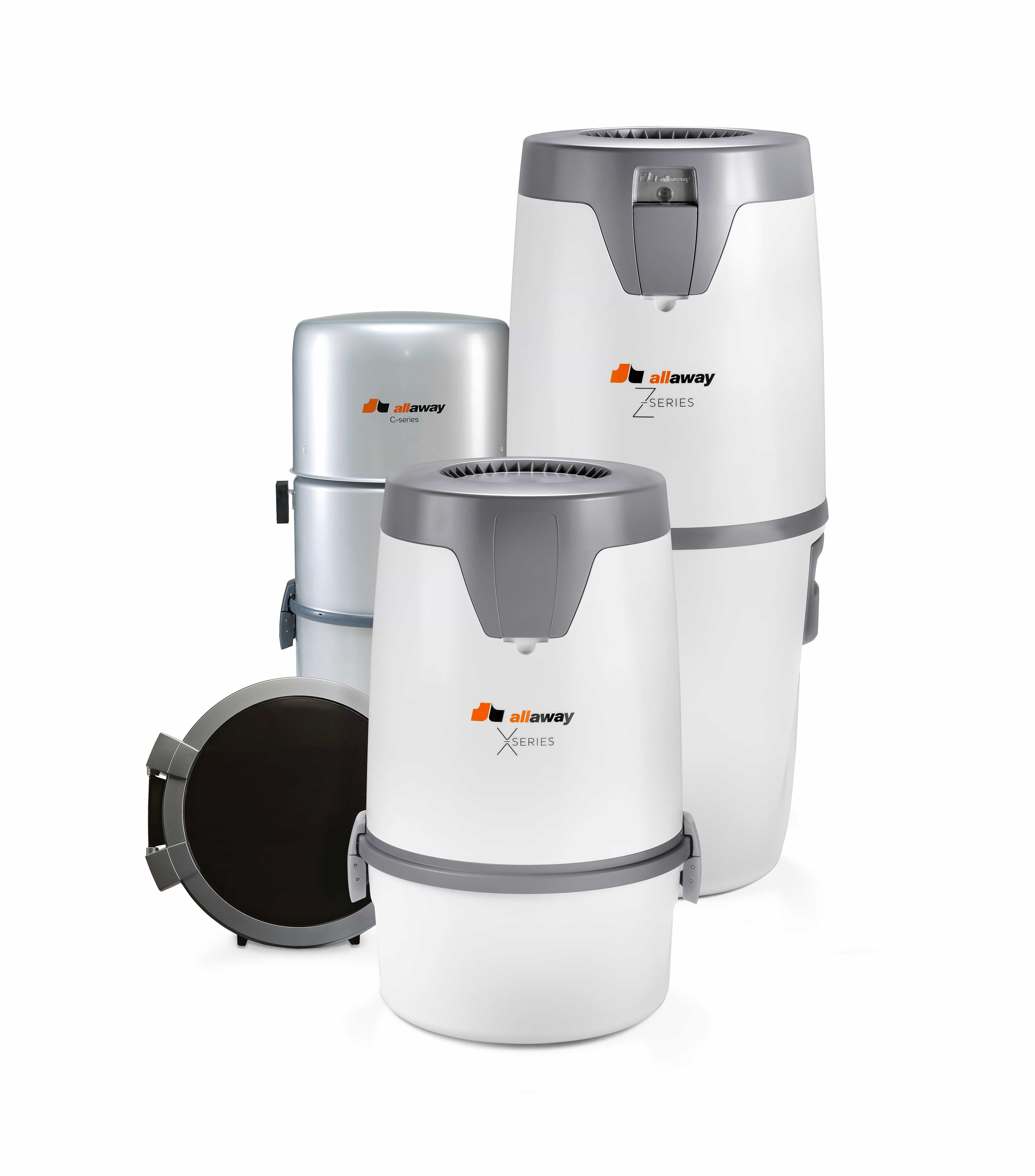
Allaway® brand was hijacked in China even before the company entered the market
Allaway’s goal was to start importing its products to China with its local partner as early as in 2014. Allaway contacted Kolster with the aim of registering the trademark on the new market. This triggered a six-year process in which Allaway, Kolster and a Chinese brand hijacker engaged in a multi-stage battle over who has the legal right to use the logo in commercial business on the Chinese market.
“It came as a complete surprise to us that an entirely identical logo had already been registered in China as a trademark in the name of a Chinese company before we had even had time to actually start sales. Furthermore, the scope of protection targeted the very same categories of goods and services in which we had registrations in Europe. The threat was that the registration would become an obstacle to trade for us in China”, Juurinen says.
According to Kolster’s trademark expert, there are a number of companies operating in China whose business specifically involves the registration of other companies’ brands in bad faith and for financial gain.
“Millions of trademark applications are filed each year in China, and the vast majority of the applications come from Chinese companies. It is estimated that there are hundreds of thousands of fraudulently registered trademarks that have been ‘hijacked’ from their rightful owners among the registered trademarks. This is made possible by the fact that China is strongly a so-called first-to-file country: the first to apply for registration will also obtain it”, Kolster's trademark expert explains.
After registration, the burden of proof to cancel the registration obtained in bad faith is passed on to the holder of the original trademark – unless the hijacker succeeds in the goal of selling the trademark back to its owner at a ‘good price’.
Kolster started pursuing the Chinese trademark’s cancellation process. The hijacker turned out to be very stubborn, using all means, appeals and court instances before the matter was finally settled in favour of Allaway.
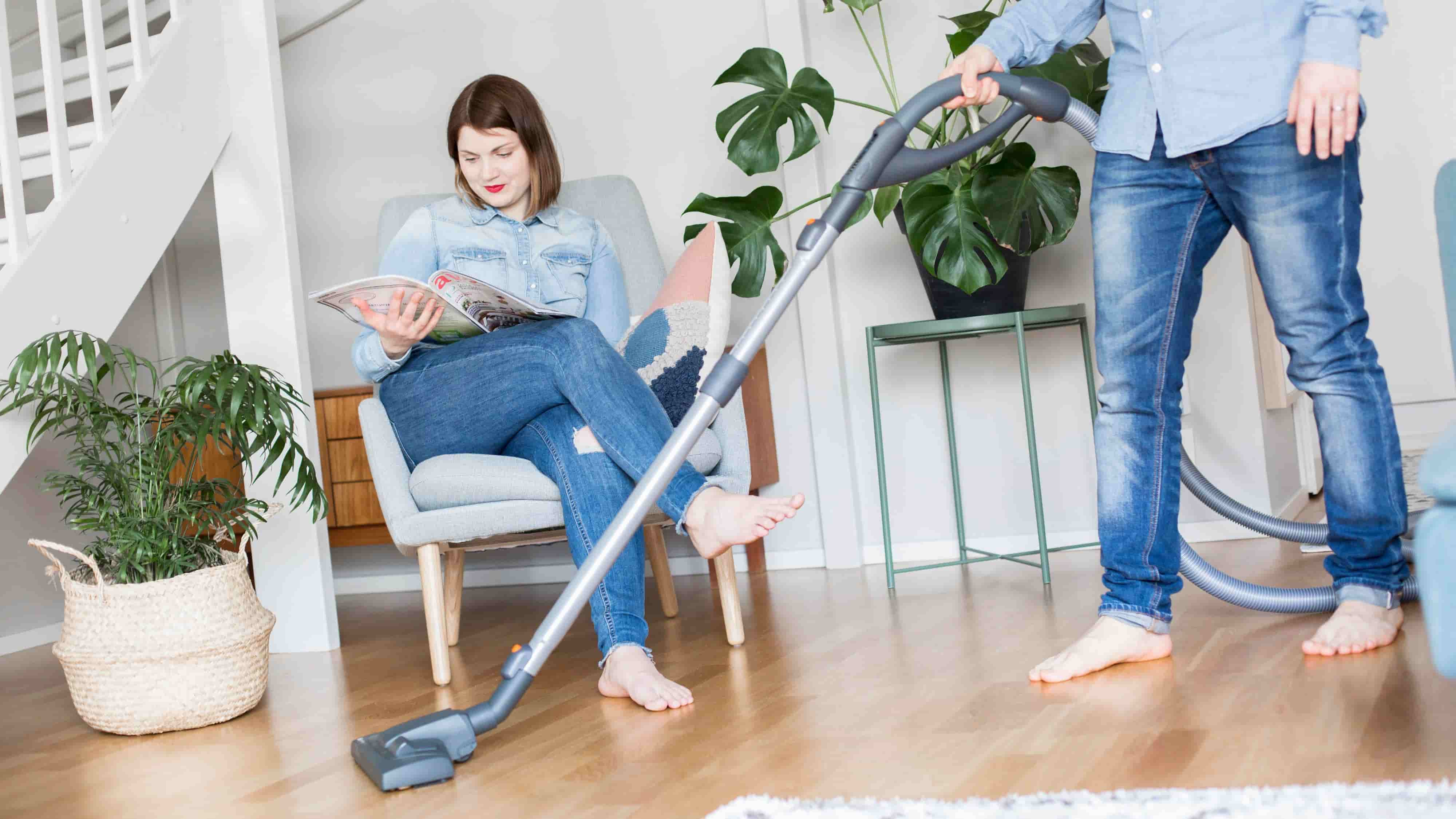
Fraudulent registration cancelled through Finnish perseverance
Kolster initiated legal proceedings by filing a claim with the Chinese Trademark Office to cancel the registration of the hijacked trademark.
“Our argument was that the registration holder had not used the trademark in the previous three years, as required by Chinese trademark law”, Kolster's trademark expert says.
However, this claim was rejected because the registration holder had provided the Office with proof of the use of the trademark. Kolster appealed the decision in order to gain access to the material submitted to the Office.
“The hijacker had clearly provided the authorities with falsified materials on the use of the trademark: the logo had been artificially added to images and contracts after the fact. However, the Board of Appeal considered the proof sufficient to keep the trademark in the register.”
At this point, an application for copyright registration was also filed for the logo to give Allaway something in black and white about being the owner of the logo. The copyright registration was granted. It proved to be very valuable because the hijacker applied for copyright registration for the same logo just a few months later.
“This application was also accompanied by fabricated material. Luckily for us, the application claimed that the logo had been created later than in Allaway’s copyright registration. Consequently, Allaway’s logo enjoyed prior copyright protection”, Kolster's trademark expert describes the significant victory.
The fight against the hijacked trademark continued in the Beijing IP Court, and an investigation was launched into the falsified proof of use. Before the court hearing, the hijacker contacted Allaway to sell the trademark to the company. However, the negotiations did not proceed. The hijacker turned passive in the case, so a new claim for cancellation based on the non-use of the trademark was filed with the Trademark Office. However, the hijacker re-submitted its previous proof to the Office, and the Office rejected the application to cancel the trademark yet again.
The cancellation process proceeded slowly at first, but so quickly towards the end that the Kolster China Desk™ expert Zhangping Wu hopped on a flight from Helsinki to China in the evening to have all the additional documents and signatures needed for the court hearing submitted to the Beijing IP Court in time the following morning.
“The deadlines in China are very short. By the time we had put together everything needed, the courier service could no longer promise that the shipment would arrive on time. However, this final push paid off, as the IP Court found that the registration of the Chinese company must be cancelled”, Kolster's trademark expert says of the second victory, which was thought to be the final ruling.
However, the Board of Appeal of the Trademark Office appealed the cancellation of its own decision to the final instance, the Beijing High Court. The decision of the IP Court did not change, and Allaway won the six-year battle at last.
The restoration of rights to Allaway required perseverance and long-term work. It required a lot of documentation. For example, it had to be proven to the court that the copyright for the logo had been transferred from its designer to Allaway during the company’s founding phase.
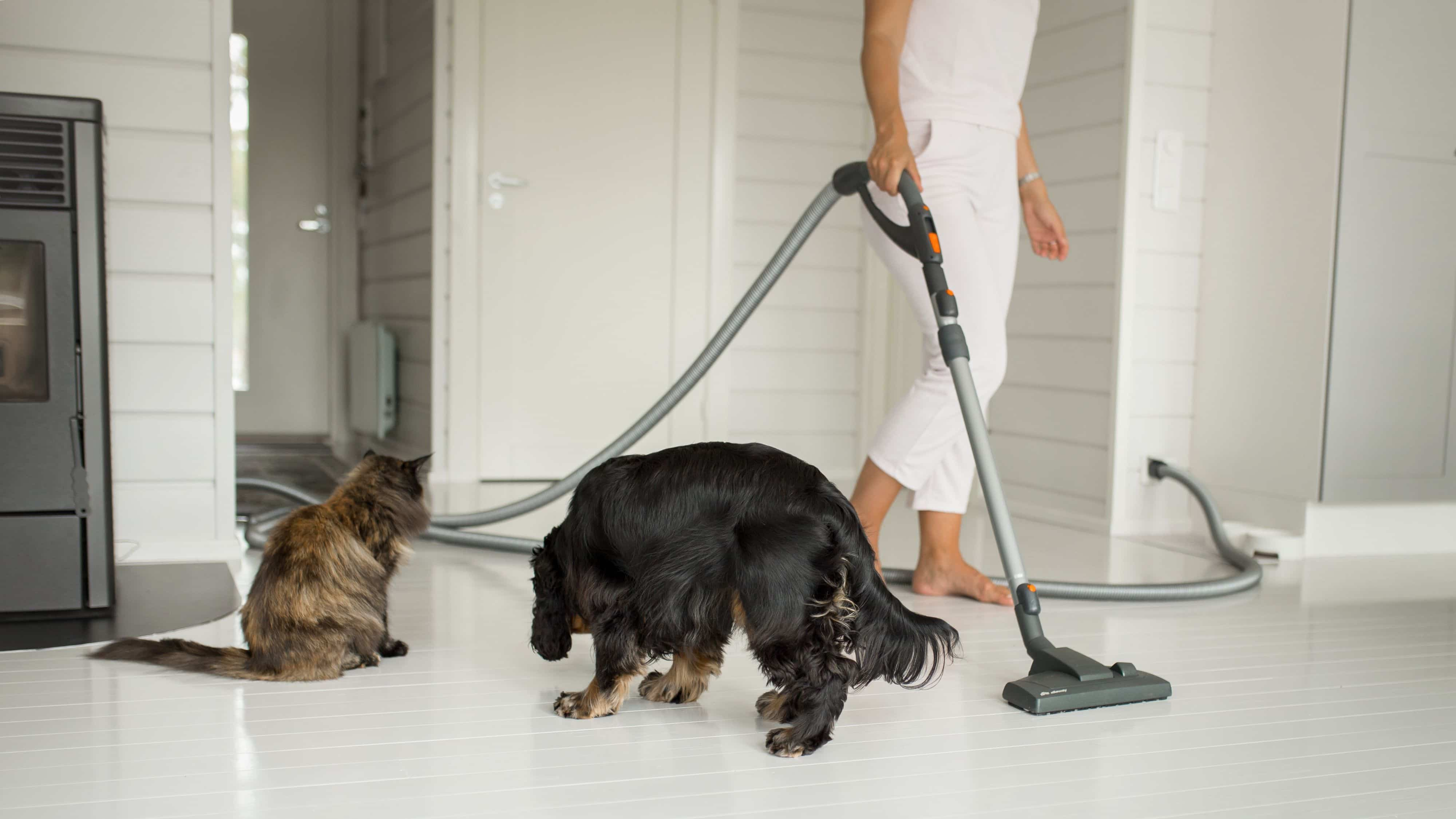
Growth now possible in China as well
Allaway’s logo was accepted into the trademark register in China in the spring of 2020. Since then, a registration certificate in Chinese has also been applied for with regard to the trademark registration.
“The Chinese Office does not automatically issue a registration certificate in Chinese; it must be applied for separately. However, it is always needed if a company is forced to defend its rights or prove the validity of its trademark to the authorities in China, or when engaging in e-commerce”, Kolster's trademark expert clarifies.
According to Kolster's trademark expert, the Allaway case is a classic example of the hijacking of a trademark of a company operating on the European market in China – anticipating the possible entry of the brand onto the Chinese market. In terms of its brazen nature, however, the case is in a class of its own.
“The case shows how far the hijackers are willing to go – even falsifying documents to the court to keep the registration in their possession.”
The cancellation of the fraudulent registration was a great relief for Allaway, as well as a significant milestone for a future growth strategy.
“So far, we have progressed in China with the brakes on, fearing that the rug may be pulled from under our feet on the new big market even before we get the business started. Now that we have the legal right to operate in China under our own brand, it is finally possible for us to advance our China strategy on a secure basis”, Juurinen says.
Increasingly concentrated market – the ability to renew technology and brand is vital
In recent years, Allaway has invested heavily in product development. The company has upgraded its central vacuum cleaning systems to the era of the industrial internet. They represent innovative top products in their sector in terms of technology, product characteristics, usability and appearance alike.
Last year, the company launched a new product generation, the Z and X series ALLAWAY® central vacuum cleaner collections with advanced smart features. Bluetooth technology is already commonplace in vacuum cleaners, and the handles of cleaning tools have wireless user interfaces. The status of the central unit can be monitored using a mobile application: when it needs to be emptied or the filter replaced. The application can also tell you whether you have remembered to clean, how much time you have spent on it in the last week or the previous month, or how the cleaning time is divided among family members.
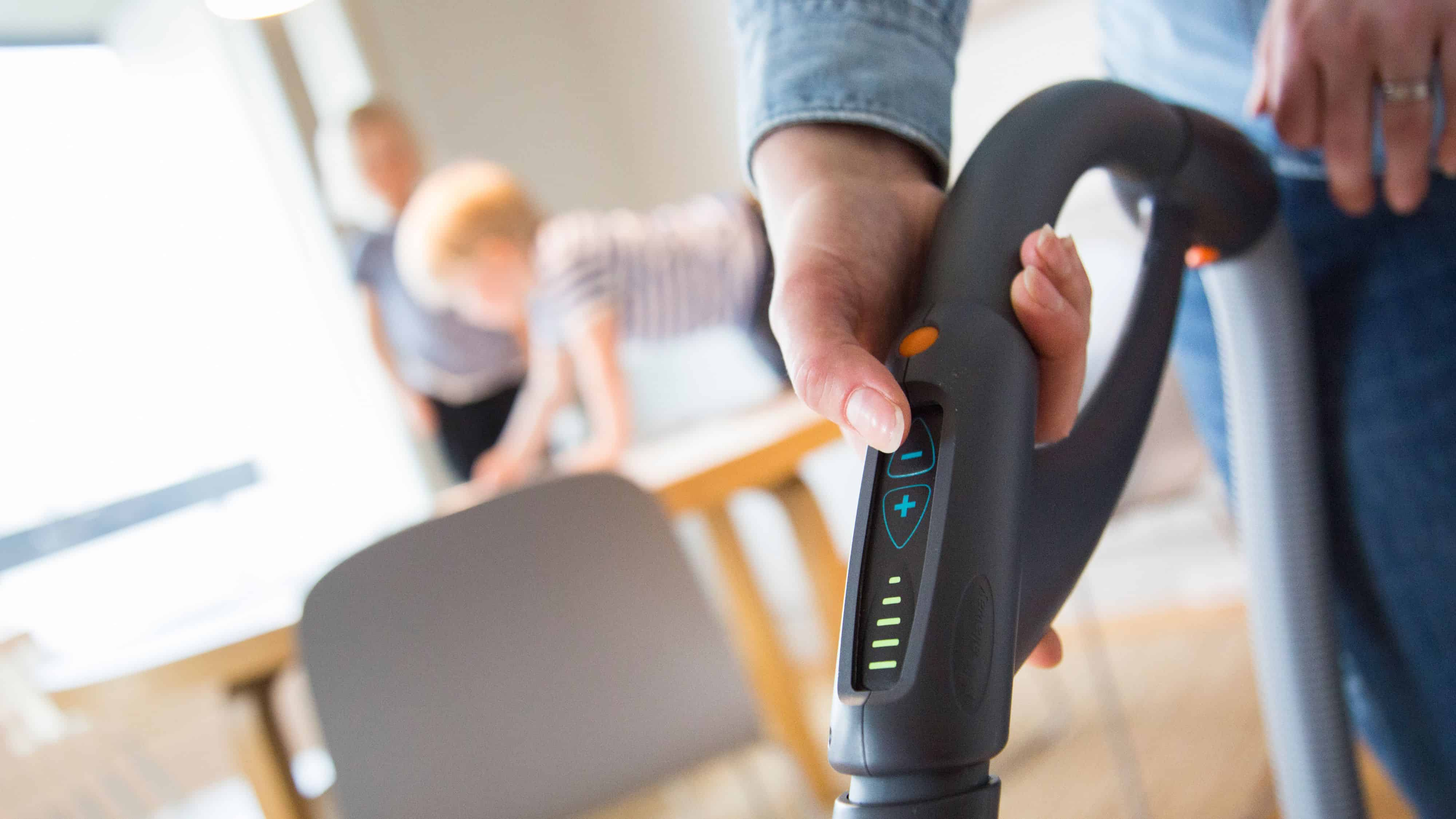
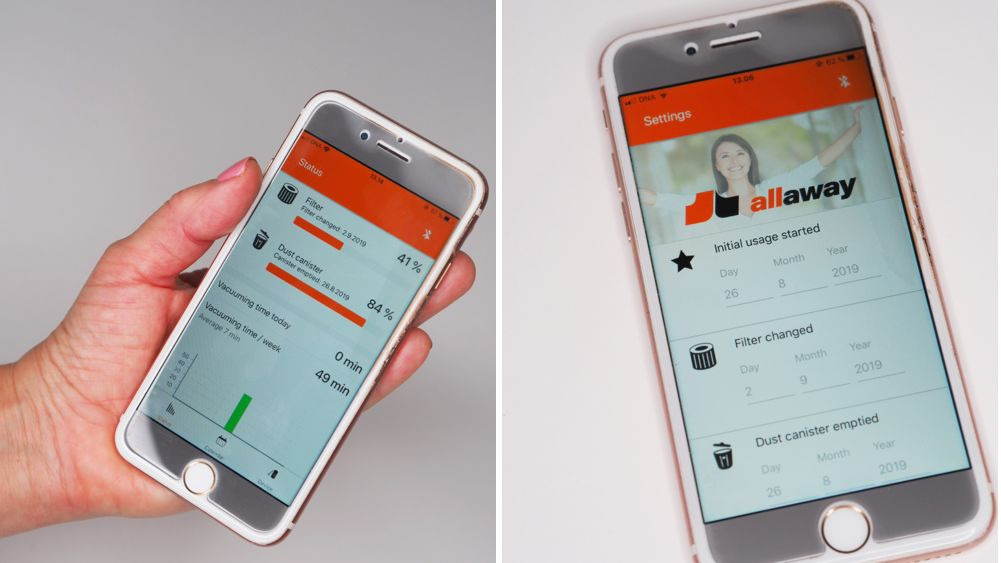
“The ability for renewal is vital if you want to stay at the forefront of the European building technology and household appliance market with your products and brand, and pursue new markets. We have made big investments in a new product family and protection, and it clearly looks like the investments have paid off”, Juurinen says.
According to Juurinen, the vacuum cleaner market will be concentrated in the hands of fewer and fewer operators in the future.
“Those operating in this niche product area need to be strong enough to build a business on the global market. Competitive edge arises from being a pioneer, not from imitating others. This is our chance to stand out.”
Allaway is bucking the market trend of ever shorter life cycles for household appliances
Allaway is the only central vacuum cleaner manufacturer with an integrated system of completely its own design. It includes a central unit, piping and cleaning equipment, guaranteeing a long service life for the products. The cleaning equipment has been designed to be ergonomic with experts, and the central units are quiet and represent Scandinavian design.
“However, the best benefit for users is that no micro-dust, which can cause the development of allergies, is left behind in the breathing area. Dust can be collected through the nozzle directly to the central unit, with micro-dust led out through the exhaust pipe. The difference in cleaning results and indoor air quality is significant compared to basic vacuum cleaners.”
In Finland, almost 300,000 households use Allaway’s central vacuum cleaning systems. Systems have also been delivered to public locations, such as hotels, assisted living facilities, kindergartens, schools, and ships – as well as to blocks of flats in new construction.
“We are working hard to make central cleaning systems more common in blocks of flats. It has been a positive surprise to us that more central vacuum cleaners are now being planned for blocks of flats in Turkey, for example, than in Finland.”
Allaway is bucking the trend of household appliances having ever shorter service lives and life cycles. The ALLAWAY® brand includes a promise of the product’s quality and long life cycle.
“We do not want to burden the environment, and we make sustainable choices already when choosing individual components. New devices are always compatible with previous devices. Machines can be upgraded, maintained, used until completely worn out, and even then recycled. Our maintenance network continues to be able to serve the first customers who purchased their equipment in the early 1980s.”
Scandinavian quality is also valued on the future export markets in Asia. The first importer partners in China and Thailand are currently building sales networks with building technology designers and developers.
“In Asia, we are now moving forward one small step at a time, but with determination – along the safe path provided by IPR!”
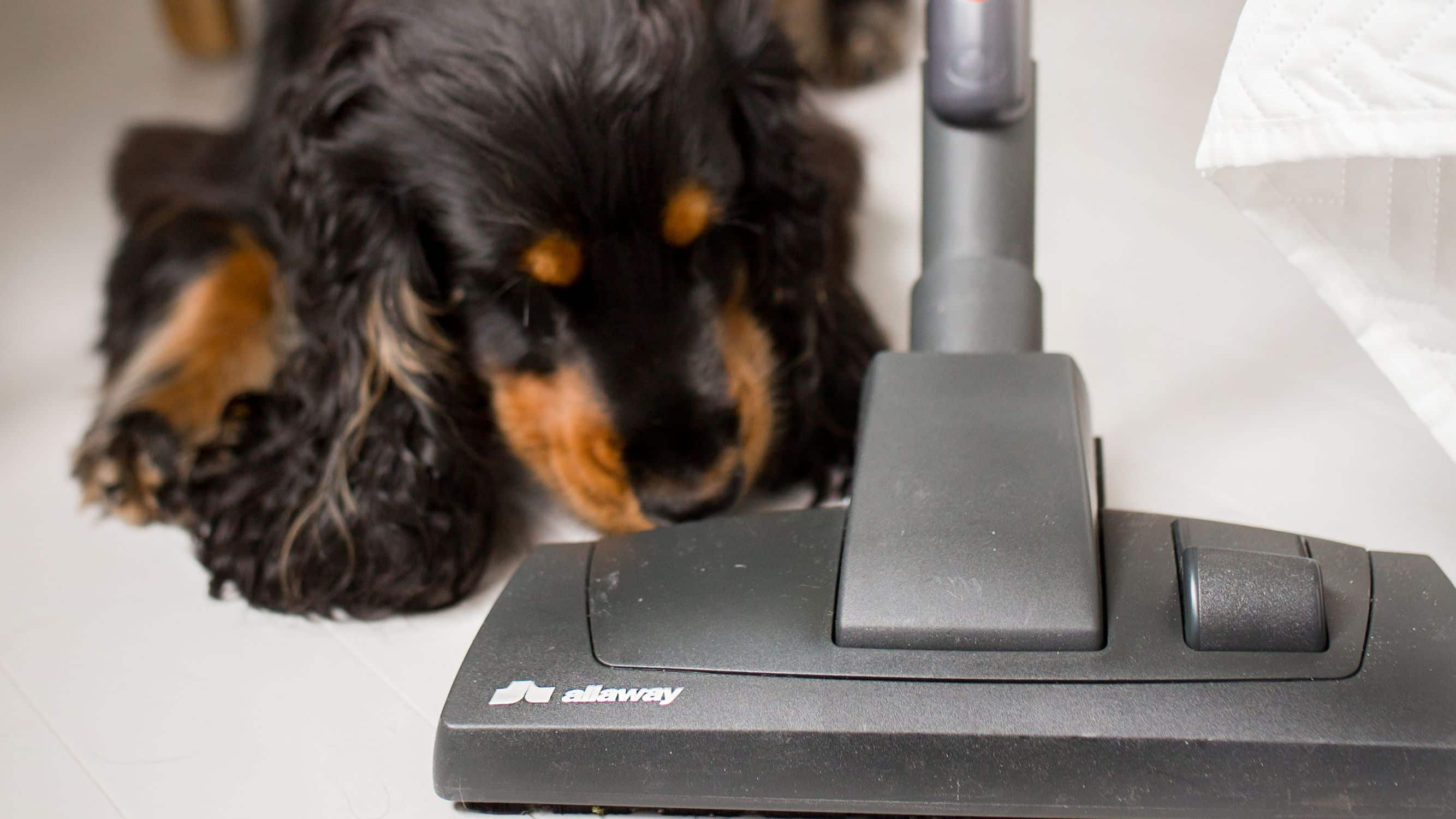
Would you like to discuss the protection of your brand or technology in international markets ─ China, for example?
READ MORE
